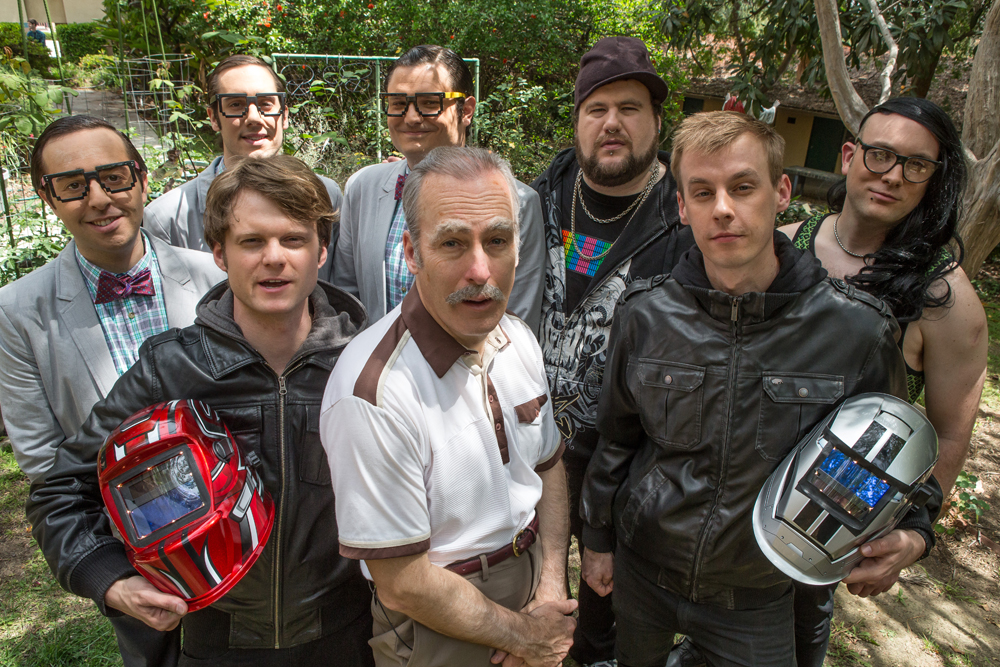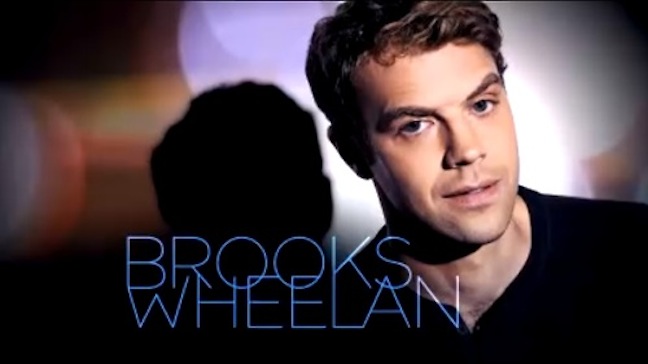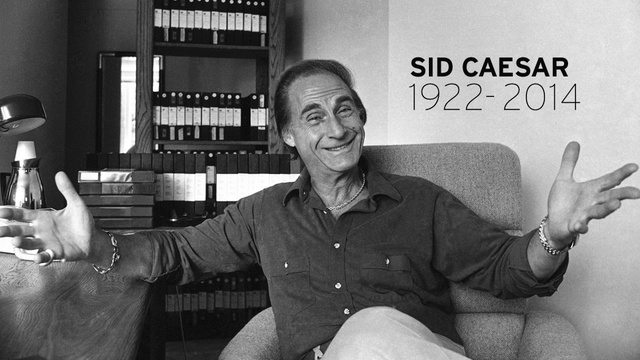The Birthday Boys arrived at IFC last year as a fully-fledged sketch group and TV show with the stamp of approval from Bob Odenkirk, who also made himself the group’s honorary eighth member.
For season two, which premieres tonight, The Birthday Boys have recruited several other comedy stars who were “down to clown” with the fellas. At least that’s what they told The Comic’s Comic in a face-to-face-to-face-to-face-to-face-to-face-to-face-to-face meeting earlier this week. Down to clown. Them’s their words.
So who’s DTC with The BDday Boys on IFC? Scott Aukerman, Chloe Bennet, Sandra Bernhard, Jack Black, Nicole Byer, Dana Carvey, Carmen Electra, Chris Elliott, Corey Feldman, Kyle Gass, Tony Hale, Tim Heidecker, Clint Howard, Ellie Kemper, Thomas Lennon, Riki Lindhome, Jennette McCurdy, Kate Micucci, Lennon Parham, June Diane Raphael, Doris Roberts, Horatio Sanz, Paul Scheer, Eric Wareheim, Fred Willard, Casey Wilson and Fabio. You can spot a few of them in this season two teaser trailer:
As for The Birthday Boys themselves — Matt Kowalick, Jefferson Dutton, David Ferguson, Michael Hanford, Tim Kalpakis, Chris VanArtsdalen and Mike “Mitch” Mitchell — their favorite sketches, at least upon first reflection, tend to lean toward their earlier work for sentimental reasons, as they often doubled as pivotal moments in their development as a group.
They explain.
Kowalick: “I think the first (favorite) was a stage sketch that we did, and it was ‘Labor Day,’ which we did for this season, for the show. But when we first did it live, it was kind of the thing that put us over the edge and got the attention of Neil (Campbell) and Paul (Rust) even more so, and they brought the idea of us putting a show together. Because we had finally built up enough work, and this was what probably was our strongest sketch at that time. And we had a closer.”
Ferguson: “That was at UCB Theatre. Neil Campbell and Paul Rust were kind of shepherding a show where they test, open-mic, sketch comedy material. And we had been doing it every week. And then, yeah. It was just this moment of, like, yeah, that sketch could be the culmination of something.”
Dutton: “It sort of brought the house down for an early live sketch for us. When comedians talk about oh, like, that first reaction, oh you chased that your whole career. It did.”
Ferguson: “It also was the one before we had a show or when we were just shooting web videos, it was the one where we always said, ‘That’d be cool to shoot that somehow, but how? What is the visual take on it?’ Basically, the central premise is that a guy dares to wear white pants after Labor Day, and is treated as like a heinous violation of civil society that he deserves to get beat up and killed for. But this year we shot it, down in L.A. River of all places. It was really fun. It was epic.”
VanArtsdalen: “Check out Episode 10, Season 2, and you’ll see that sketch.”
“I can say for me, my favorite sketch from before we did the show was called ‘Pool Jumpers.’ That is kind of a pseudo-documentary trailer, kind of in the style of Dogtown and Z Boys, except this is a trailer about guys jumping into a pool and catching a ball. The guys that invented that. So check that one out.”
Kalpakis: “I have a soft spot for ‘Ham Hat,’ probably. Because that was an old video that was the first time we did a thing that felt more like, that it was just our style, maybe. We had done some sketches at UCB and gotten some laughs, but when you first start writing, you’re just like, ‘Is this a sketch? Yeah! I wrote a sketch!’ And then the audience laughed. What will I write next that hopefully the audience will laugh? I felt like maybe ‘Ham Hat’ was the first time that I felt like, other people wouldn’t have done that. It’s a very weird thing to do. It’s a very specifically stupid idea that we really had to commit to the stupidity. So we all had to like that type of.”
Ferguson: “It’s also six minutes long.”
Kalpakis: “It’s six minutes long, and it’s really sentimental, and really nostalgic, and sweet in a way that maybe you would be embarrassed of it. But I felt that was the first time — when people liked that video — oh, OK, I didn’t just take a thing from my SNL packet or whatever. It felt like this was our thing.”
Ferguson: “That was a sensibility thing that we started to tap into then. The idea that…
Dutton: “That and ‘Labor Day.'”
Ferguson: “…that you could drench comedy with a little bit of sincerity.”
Hanford: “It’s also funny because you’re taking it so seriously.”
Kalpakis: “For some reason, it feels like in 2014, kind of the most alternative thing you could do is not be cynical. I think there’s been so much awesome awesome awesome, dark, cynical, ironic comedy. Stuff that we love. But sometimes it feels when we try to pile onto that, it doesn’t feel right. And then if we do something that is just super super sincere. We talked to Bob about how, we don’t really like to do parodies of things we don’t like. Like, I hate that movie. Let’s stick it to them! I love that movie. Life is more of a disappointment than what that movie is, so let’s have that be the joke. I think that was the premise of Pool Jumpers. It wasn’t like we were thinking, ‘I hate Dogtown and Z Boys.’ It was more just like, nobody deserves this type of glory. You guys rode skateboards. You don’t deserve this type of glory.”
Hanford: “I’m still thinking of one.”
How about your favorite sketch idea you haven’t gotten approved yet, either by IFC, by Bob or by the rest of the guys?
Hanford: “I was going to say the Vietnam sketch. That’s one we’ve wanted to do that we just haven’t been able to make work production-wise. But it’s basically a story about — it’s a trailer idea — Vietnam vets coming home. They’re all scraggly and overgrown. They have a rough time. They’re arguing with their families. And then you see them as young kids and they’re getting along great and having such a great summer night. And then you realize that what made them turn into Vietnam vets, scraggly, was that they went to see a movie about Vietnam. You see them sitting in the movie theater.”
Ferguson: “It’s like The Deer Hunter‘s Deer Hunter.”
Hanford: “And then they’re in the lobby. The usher is putting a flower in the guy’s soda straw. It’s something that makes me laugh.”
Ferguson: “It’s a heavy mapping, over a sketch. It’s yet another example of taking, we love those trope genre treatments of this thing that you shouldn’t care that much about. Car-E is another thing, this remote-controlled car…
Hanford: “Oh, were you going to say the Old Man sketch?”
Ferguson: “Yeah, I was.”
Hanford: “Go ahead!”
Ferguson: “Are you familiar with Vin Scully, the Los Angeles Dodgers broadcast announcer?”
Yeah! He has been around forever.
Ferguson: “You’d think he’s been around forever.”
Hanford: “It’s an old baseball announcer who insists that he’s a young man.”
Ferguson: “That’s the whole bit.”
Hanford: “Saying things like, ‘I do exciting things on the weekend, like ride skateboards and cut my pants into shorts.'”
Ferguson: “You’ve also pitched that at Comedy Bang! Bang!”
Kalpakis: “Not just pitched. This has been scripted, put on a card, put on a wall for Comedy Bang! Bang!, and Scott (Aukerman) says, ‘This is not funny to me.’ But it has been scripted, put on a card, put on the wall for The Birthday Boys, and Bob has said, ‘This is not funny to me.'”
Ferguson: “I’ve got a favorite that Mike entered into our brains a little bit — I think a bit that you and Jeff used to do around the house. We all lived together, by the way…So a lot of these sketches were things that we joked around about before they were sketch premises. But there was one that’s in this season, Episode 9, called ‘Starwars.’ You’ve got to write this down as one word, Starwars. For legal reasons. No! Not for legal reasons! The premise is that, at the time of George Lucas’ Star Wars, there was another movie, called Starwars. One word. And these guys play huge fans of this franchise. And they’re riffing about in a bar, and it’s just two degrees off from what you know. Like, instead of Darth Vader, it’s Dark Vader, and Lou Skywalker, and they’re talking about The Energies instead of The Force, and so you think that the other shoe is going to drop, but these guys just had so much fun with, ‘Nope! It really is a thing! And we’re going to keep committing to this.’ So we shot some of this fictional movie with Thomas Lennon. It’s just a fun, silly production, with a whole little nuanced.”
“Instead of light sabers, it’s machine guns.”
“So that was mine, from this season.”
Dutton: “Yeah, that’s a good one. This is not a real barn-burner, not an imaginative one, but ‘Pretty Dad’ from season one is like, I don’t know if I’d call it an entry point for us. I wouldn’t start a lot of people on it. It’s pretty insane…It’s like a John Hughes era, high school scene, where Dave’s date stands him up and Mitch plays his dad, and to cheer him up, Mitch puts on a prom dress.”
Ferguson: “The sketch feels like it will end there. And then…”
Dutton: “They go to the prom together. And then, of course, the jock played by Chris takes a liking to Dad, and ditches his son, and then they have a teary reunion back at the house after the jock fingers Dad. And I guess, like, also, you won the prom?”
Ferguson: “The thing I like about watching that sketch is, all the things that are implied and not said. All the details you have to fill in in the gaps.”
Dutton: “That’s one where there’s almost no jokes on the skin of it. All the jokes are in the bones and the muscles of
Ferguson: “If this is true, then what happens?”
Dutton: “Nobody’s saying anything really funny. Or, if they do, it’s motivated from sincerity. It’s so so dry and sincere.”
Ferguson: “It’s interesting, too. We’re all picking up on things…It reflects this weird balance that sometimes our show hits on, which is the raunch where that sketch, and then the sincerity of a little remote-controlled car that is trying to make its way to the Land of Pretend. Or the group of people that make a Ham Hat web video and celebrate it for six minutes. I like that it’s not just one thing. There’s never one premise or character that we go to the tank to, and I think it’s because there are seven of us. So when we get that question of, is it hard to have seven of you? Yeah. You’ve got to agree on a lot of things. But it’s a helluva lot easier to come from a lot of different directions on a simple idea.”
You can’t pin you guys down.
Ferguson: “Which is hard to market, by the way.”
Hanford: “One sketch I loved from our stage days was one where our sergeant was a duck.”
All: “Oh, Pecking Order!”
Dutton: “Let me explain, first the image on the screen. It’s up very briefly, but it’s an upside-down Army helmet filled with hay or straw, and all of our little heads are there. But in the back, there’s a faint silhouette of a duck. So our faces are like eggs.”
Hanford: “We’re all dressed as Army guys, talking about, ‘Oh, the sarge is crazy. New sarge is kicking our butts! He’s not so tough to me, I can take him. And then the door opens up. Oh my God! Sarge is coming! And a duck, a live duck walked in. He had an Army helmet on.”
Kalpakis: “He was an actor duck that we hired.”
Hanford: “And we all stiffened up like we were scared.
Ferguson: “Like Matt was saying about the ‘Labor Day’ sketch, maybe we could do a show at UCB Theatre, it felt like it was something more than a one-off sketch. I felt similarly when we were working on that sketch and a couple of others, that was so funny because in our brains, it was so groundbreaking for us. But it’s probably something that a Theatre 101 student realizes between Theatre 101 and Theatre 201 or 102, that you can explore the space. That you can do things like on the stage or in the theater, that other people are just playing scenes with each other, two characters or whatever. We can open up the world of the theater. We can crawl out of the tech booth, turn the theater into a ship. You don’t have to do that much! That’s why you’re in sketch comedy, like, open up the whole world.”
Kalpakis: “We were actually the first actors to explore that!”
Ferguson: “I think that same realization happens, making the TV show. Oh. OK. Or making web videos. We realized, yeah, you can shoot a living room scene, and it’s funny, it’ll be great. But what we started to realize and really enjoy was when you got to call something back later in the show from a totally different genre angle.”
Dutton: “Using TV.”
Ferguson: “Really using the medium more.”
Kalpakis: “Because if, on TV, you have a duck come out, people will just be like, yeah, OK, I see ducks all the time. That’s normal.”
Dutton: “That was a big hurdle. Well not big. But when we were doing a show, for us, going from stage to screen, we loved this duck sketch. We did sort of realize, it just doesn’t matter if you have a duck on television.”
Ferguson: “People assume you had a budget.”
Dutton: “Once you put something in that box on a flat-screen, people just assume anything is possible. For us, just achieving anything lofty with our budget is just what we worked really hard to do. So, just hiring a duck gets you nothing. It brought the house down live. It would do nothing on television.”
Ferguson: “It’s relativism. At UCB Theatre, most people are going to watch improv shows. Black-box improv shows. Nobody wears a costume. Nobody wears a wig. You’re just doing it, so it’s all relative to whatever medium you’re working in. And TV, same thing. It’s not enough to do a stunt. A stunt is done on every episode of Walker, Texas Ranger. You have to do an angle on a stunt that is organic to the idea.”
Hanford: “He’s a Young Man.”
Mitchell: “One of my favorite sketches is a beaver sketch we have this year. It’s a beaver that keeps — we’re lumberjacks — he keeps eating up all of our wood. And that was just very funny to me.”
Kalpakis: “When we were trying to pick a name for our group, Mitch kept trying to want to call the group Beaver Fever.”
Mitchell: “I did.”
Kalpakis: “No context! Just thought it was funny.”
Mitchell: “And I didn’t mean for it to be dirty. I swear to God.”
Kalpakis: “So that’s funny that we did it, and we committed to it, and Tim and Eric are in it. It’s this big storyline. I love that that’s the one you think of, because you would have liked anything that just had a beaver in it.”
Mitchell: “I like little critters.”
They talk about the obvious fakeness of their beaver co-actor, and whether it’s possibly from the same company that supplied the gopher for Caddyshack, and allude to another wacky sketch.
“As far as sketches we like that didn’t get made, I have a sketch about a frog becoming a pope. It’s called Frog Pope. It was rejected multiple times. Rejected Season 1 by Bob. Rejected in Season 2 by Bob. Then rejected in Season 2 by everybody.”
Dutton: “Came back bigger than ever, though.”
Ferguson: “I’m proud to always have been in the camp that rejected Frog Pope.”
Kalpakis: “There was a moment this season, where there was an episode that Bob thought he was doing us a huge favor by going, ‘Guys, tell you what. We’re putting it in. Bring in the Frog Pope sketch, we’re going to work on it, get it into the show. Like giving a gift to Mitch. But we were all like…”
All of them, laughing: “NO!”
Season one of The Birthday Boys on IFC is available on Netflix. Watch a full episode (episode 3) from the second season of The Birthday Boys right here, right now, or whenever. Your call:



